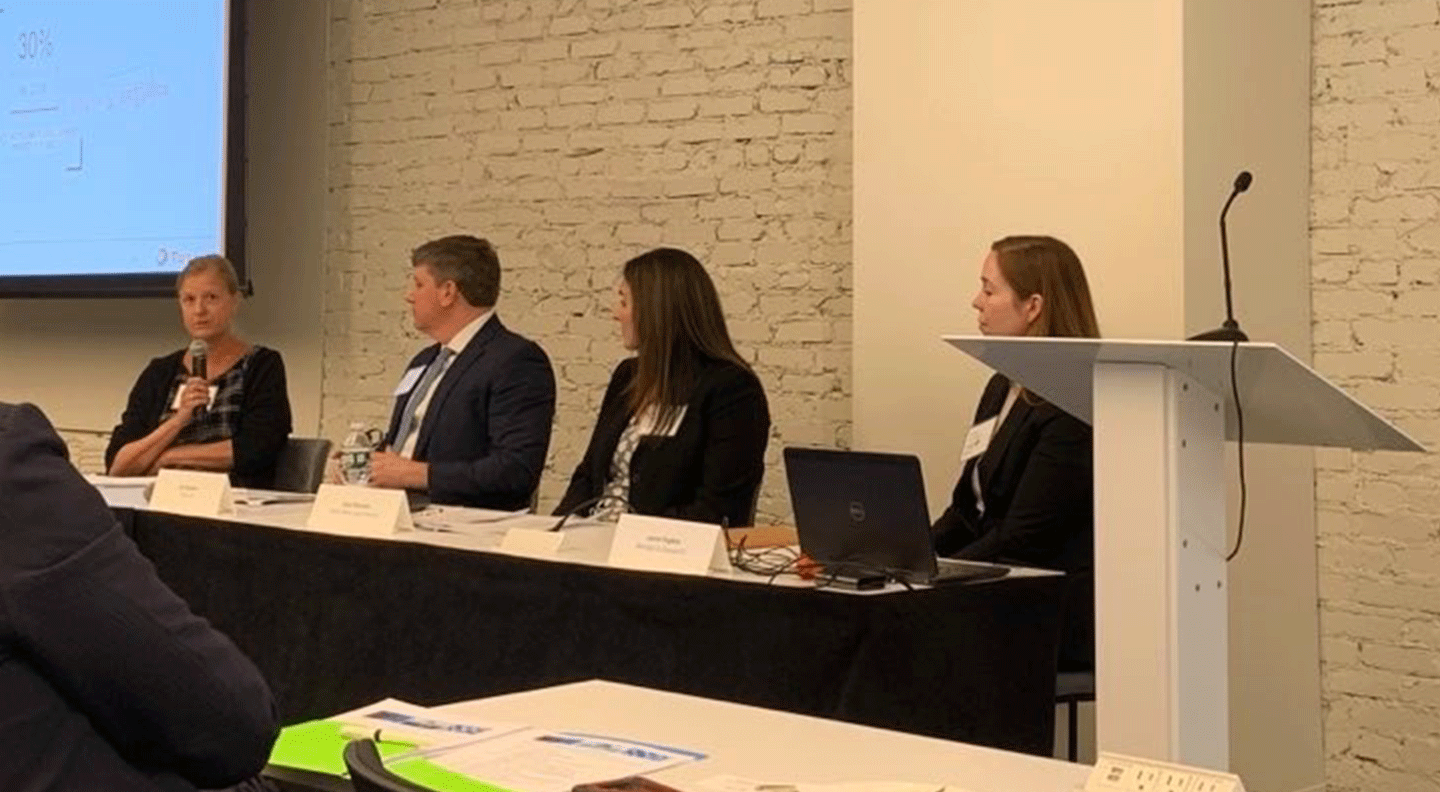Patricia Whiting, senior international policy analyst for Sims Lifecycle Services (SLS) recently attended two meetings concerning plastic waste from the perspective of the circular economy and transboundary movement. One symposium was hosted on Feb. 12, 2020 in Washington by the law firm of Beveridge and Diamond; and the other was held in Seychelles, Africa on March 2-4, 2020 by the Basel Convention’s Public-Private Partnership. As previously noted, the issue of plastics waste and marine litter debris continues to be an emerging issue. Public awareness heightened with intensified media coverage beginning in 2015 with the publication of a much-cited paper entitled “Plastic Waste Inputs from the land into the Ocean” by Jenna Jambeck, among others and a segment in 2017 on the BBC series “Blue Planet II” on the Effects of Micro-and Nano plastics on Aquatic Ecosystems. This is not a new issue and has been on the radar of academics and scientists for years. There are high costs associated with plastics pollution in terms of cleaning marine debris from harbors and beaches to sustain tourism revenues; in addition to the long recognized adverse effects of large and slowly degrading plastic items on the marine environment (biodiversity) and human health (food chain). Floating plastics and lost fishing gear decrease fishing stocks and cause damage to the propellers of fishing and recreational vehicles.
Recognizing the complex and multidisciplinary nature of plastics waste and marine litter debris, the issue requires a measured approach and shared data among countries. This will continue to dominate discussions in environmental legal and policy arenas, as circular economy approaches will be applied more to plastics regulation.
Beveridge & Diamond Circular Economy and Plastics Symposium
The Beveridge & Diamond symposium focused on emerging global policies and business implications. In addition to several Beveridge & Diamond Principals, speakers included representatives from:
- The EU’s Delegation to the U.S. on the Environment and Maritime/Fisheries Policies;
- Covestro LLC; Nestle Waters North America;
- Total USA; the Environmental Defense Fund;
- American Chemistry Council; and
- Sims Lifecycle Services.
Topics included:
- An outline of what the Circular Economy is;
- The Momentum Behind Combatting Plastic Pollution;
- Global Trade Controls on Plastics Wastes;
- Pathways to successfully Scaling the Circular Economy: New Recycling Technologies; Citizen Suits, Enforcement, and NGO Engagement; U.S. Federal, State and Local Initiatives; and
- Perspectives from Abroad: Brazil and China.
In terms of SLS’ engagement, Whiting participated in a panel discussion providing sector perspectives with Anna Marciano, VP associate general counsel for Nestle Waters, North America, and Joe Herbster, assistant general counsel for Total USA.
For more information concerning the symposium, please contact Patricia at [email protected]
The First Meeting of the Basel Convention’s Public-Private Partnership on Plastics Waste
Whiting also participated in the first meeting of the Public-Private Partnership on Plastics Waste (PWP). This meeting was hosted by the Government of the Seychelles, and organized by the Secretariat of the Basel, Rotterdam and Stockholm Conventions in collaboration with the Africa Institute for Environmentally Sound Management of Hazardous and Other Wastes, as the Basel Convention Regional Centre for English-speaking countries in South Africa (BCRC South Africa). Financial support was provided by Canada, Japan, Norway and Switzerland.
At its fourteenth meeting in 2019, the Conference of the Parties (COP) to the Basel Convention (multilateral environmental agreement among 187 countries governing the transboundary movement of waste among) the Parties amended its annexes to control most plastic shipments as hazardous under the Convention. This means Basel Parties will have to seek and obtain approval prior to shipping plastic waste for recycling to other countries. The amendment poses problems for the United States in terms of moving plastics for global recycling, as the United States is one of two countries that has not ratified the Basel Convention. Therefore, the United States is prohibited from trading Basel controlled waste with other Basel Parties. This initiative was proposed by Norway and adopted in record time relative to other decisions adopted by the Convention. The OECD Waste Multilateral (populated by mostly developed countries) is now evaluating how to harmonize its control system with these Basel Amendments.
In tandem with the plastics amendments, the Basel Convention established the PWP. The objective of the PWP is to improve and promote the environmentally sound management of plastic waste at the global, regional and national levels and prevent and minimize their generation with the goal. This, among other things, would significantly reduce and eventually eliminate leakages of plastic waste and microplastics into the environment (especially the marine environment). The PWP is the Convention’s fourth partnership. Previous Partnerships have addressed the environmentally sound management (ESM) mobile phones and computing equipment. An existing third partnership is addressing household hazardous waste.
The meeting sought to launch the work of the PWP by negotiating administrate and operational work content and working procedures. In particular, the group:
- Discussed working modalities, including the terms of reference, membership, and financial arrangements and issues related to the PWP workplan;
- Discussed the establishment of project groups and fleshed out specific activities to be undertaken by the project groups. The four project groups will cover plastic waste prevention and minimization; collection, recycling, recovery; transboundary movement; and outreach and education.
In addition, a consultant to the Basel Convention presented initial findings from a baseline report on plastic waste and the stocktaking of initiatives on plastic waste and several participants shared updates on recent developments of relevance to the work of the PWP.
